From November 15 to 17, the 5th China Digital City Brand Hangzhou Forum was successfully held under the theme Co-Build, Co-Share, Co-Win: Digital Intelligence, Community, Rhetoric, and Mediated Cities. The forum was co-hosted by the Zhejiang University Digital Communication Research Center, the Institute of Journalism, Media, and Social Development at Zhejiang University, the College of Media and International Culture at Zhejiang University, Zhejiang University of Media and Communications, Zhejiang University City College, and the Zhejiang International Communication Center. The event attracted dozens of experts from government, academia, media, and industry.
The forum unveiled two significant reports: the Hangzhou Digital City Communication Capability Assessment Report (2024) and the China Urban International Communication Influence Index Report (2024). Drawing on the vivid practices of China’s urban digital transformation, experts from various sectors discussed leveraging digital intelligence to enhance cities’ international communication, thereby boosting their global influence and discourse power.
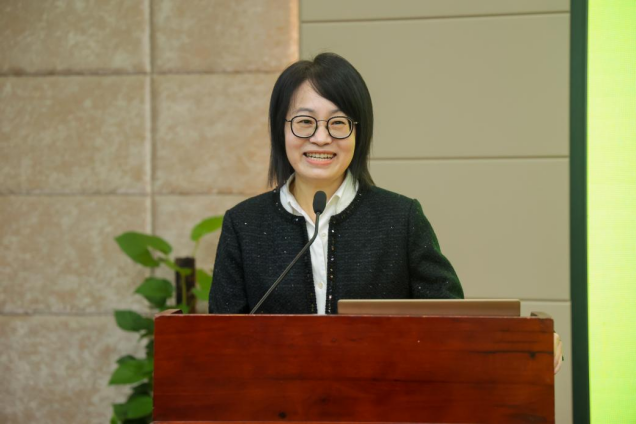
The opening ceremony was hosted by Wu Hongyu, Deputy Director of the Zhejiang University Digital Communication Research Center and a professor at the College of Media and International Culture. Huang Dan, Director of the Digital Communication Research Center and Senior Professor of Humanities, delivered the opening speech. Huang emphasized that cities have always been the birthplace of media, and media act as a driving force for urban transformation. He noted that digital cities integrate digital technologies into urban structures and character, going beyond mere technical applications.
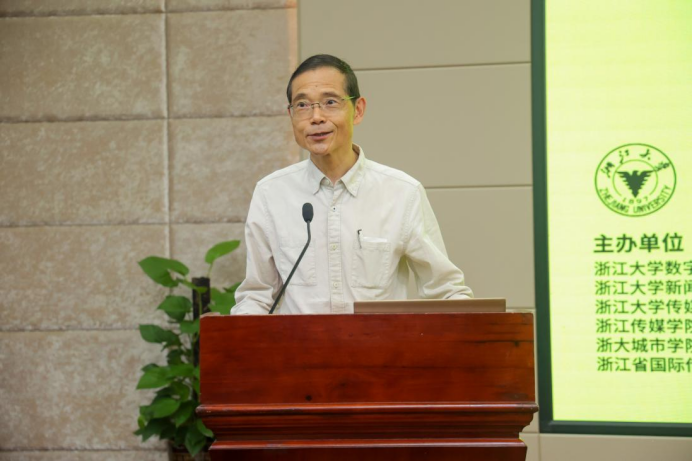
As critical nodes in global communication networks, cities serve as core symbols of national image and comprehensive strength. Urban international communication has strategic value in the development of Chinese modernization. During the report release, Professor Zhang Zike, Deputy Director of the Digital Communication Research Center, presented the Hangzhou Digital City Communication Capability Assessment Report (2024). The report constructed a four-dimensional evaluation framework encompassing digital infrastructure, data integration mechanisms, digital platform effectiveness, and digital welfare gains. It assessed Hangzhou and other key cities in the Yangtze River Delta, proposing measures to enhance digital communication capabilities, including improving top-level design, promoting data marketization, strengthening cross-organizational collaboration, and boosting the efficiency of governmental platforms.
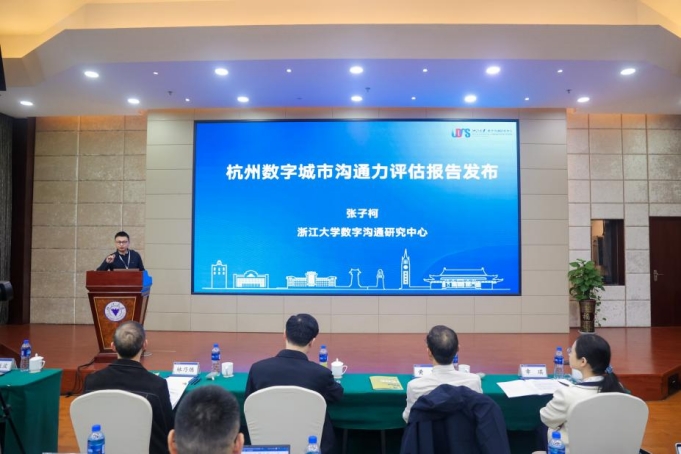
The team led by Wei Lu, Vice President of Zhejiang University of Media and Communications and Director of the Zhejiang University Converged Media Research Center, introduced the China Urban International Communication Influence Index Report (2024). Covering research background, evaluation framework, data collection, and rankings, the report analyzed the current status and challenges of Chinese cities in international communication, summarized best practices, and offered recommendations. These included leveraging iconic IPs, employing “AI+” for creative content, telling city stories through corporate narratives, enhancing international communication mechanisms, and creating “service-oriented” and “ideal” urban experiences.
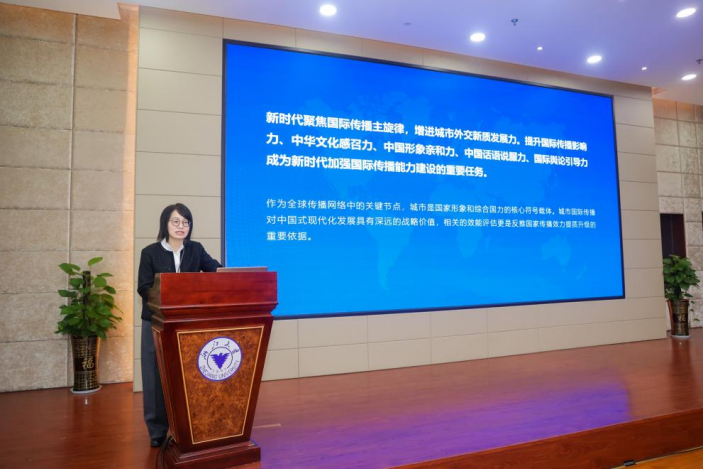
In the overall ranking of Chinese cities’ international communication influence (including Hong Kong, Macau, and Taiwan), Hong Kong, Beijing, and Shanghai secured the top three spots, with Macau and Taipei ranking fourth and fifth. Hangzhou, Guangzhou, Xi’an, and Chengdu also ranked within the top ten. Excluding Hong Kong, Macau, and Taiwan, Beijing, Shanghai, and Hangzhou maintained the top three positions, followed by Wuhan, Shenzhen, and Qingdao among others in the top ten.
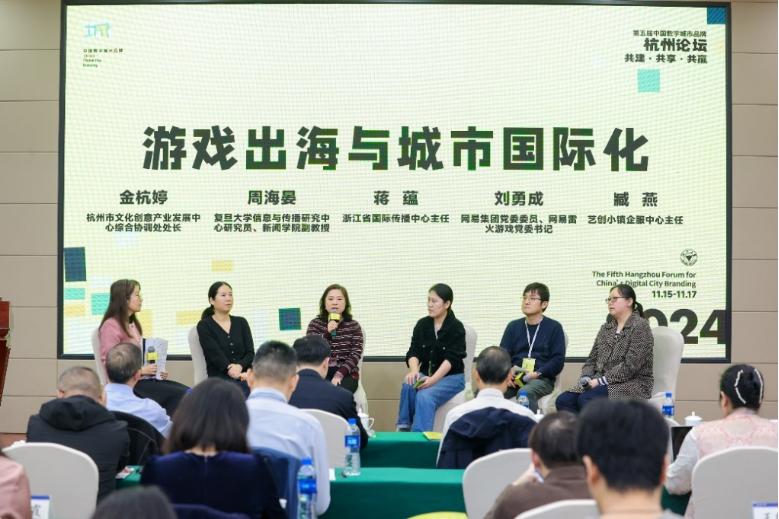
As global information technology evolves, new interactive and visually engaging channels such as gaming and short videos have become crucial for international communication. During a roundtable session titled Game Expansion and Urban Internationalization, moderated by Associate Professor Zhang Hong, experts discussed leveraging gaming to boost city branding. Panelists included Jin Hangting, Director of the Cultural and Creative Industry Development Center of Hangzhou, Zhou Haiyan, Associate Professor at Fudan University, Jiang Yun, Director of the Zhejiang International Communication Center, Liu Yongcheng, Secretary of the NetEase Leihuo Gaming Committee, and Zang Yan, Director of the Yichuang Town Business Service Center. The session concluded with insightful remarks from Wang Xinhua, Director of the International Exchange Division of the Zhejiang Provincial Publicity Department.
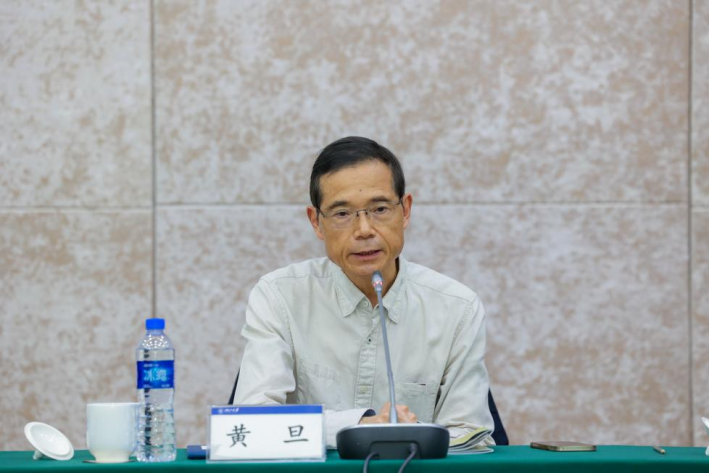
In the afternoon session, experts shared case studies on Digital Nomads and Urban Communities,Digital Twins and Urban Intelligence,Digital Sensibilities and Urban Interaction, and International Communication and Urban Branding. These discussions showcased innovative branding practices from cities such as Suzhou, Hangzhou, Shanghai, and Wuhan, highlighting new pathways and opportunities for urban branding in the digital era.
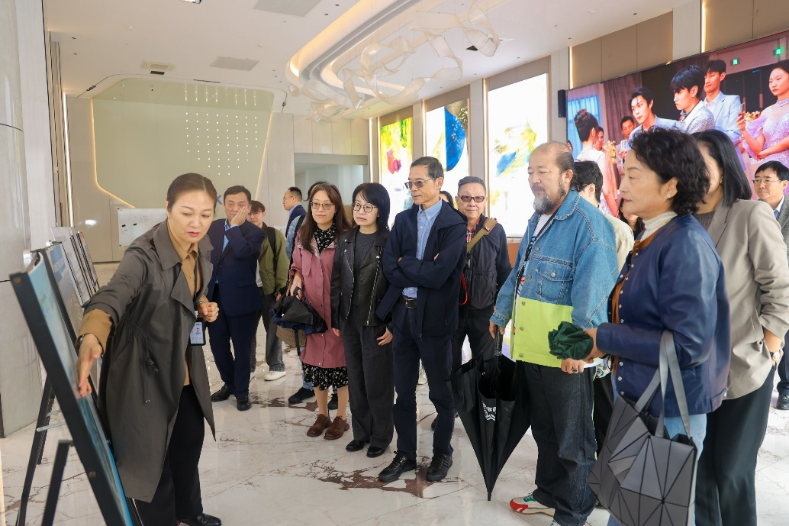
A special field visit and discussion session were arranged in Qujiang District, Quzhou City. On November 17, experts visited the Meigao Short Play Super Factory and other sites. In the afternoon, under the chairmanship of Deputy District Governor Hong Yu, a themed discussion on Enhancing the Digital Cultural Tourism Brand of Qujiang District was held. Representatives from local government departments and enterprises joined scholars to address challenges and explore how digital technologies can drive cultural tourism development.
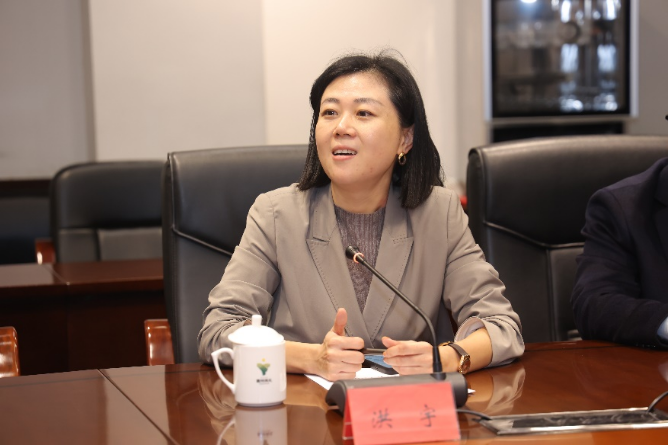
Professor Huang Dan proposed three key points for Qujiang’s cultural tourism branding: defining its core content, integrating elements into the market, and aligning branding with urban planning using digital tools. He also emphasized coordination with Quzhou City’s overall development and fostering inter-city collaboration for joint promotion. Professor Wu Hongyu suggested consolidating esports, sports, and short-play resources under a unified “Youthful Qujiang” brand while leveraging local cultural strengths to stand out among other cities. Participants underscored the need for top-level design, redefined internal values, and external communication strategies to strengthen the region’s cultural identity.
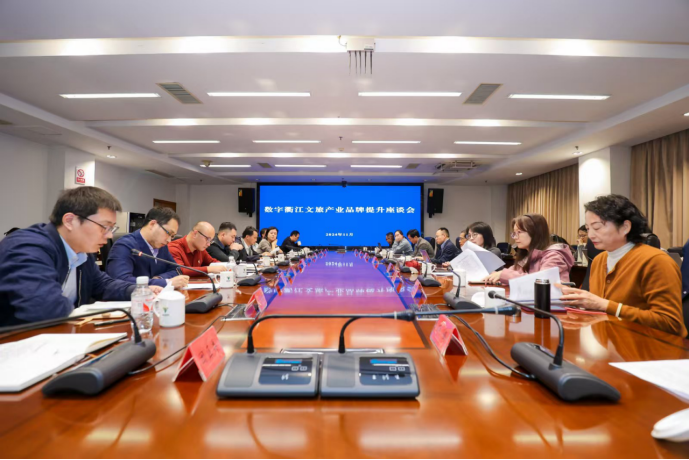
The visit and discussions laid a solid foundation for future collaboration. As digital technologies advance, cities are gaining increasing influence in global communication. This forum provided valuable intellectual support and innovative ideas for urban digitalization and international branding, helping cities identify their roles in the global landscape and establish competitive brand identities. The 5th China Digital City Brand Hangzhou Forum concluded successfully.

